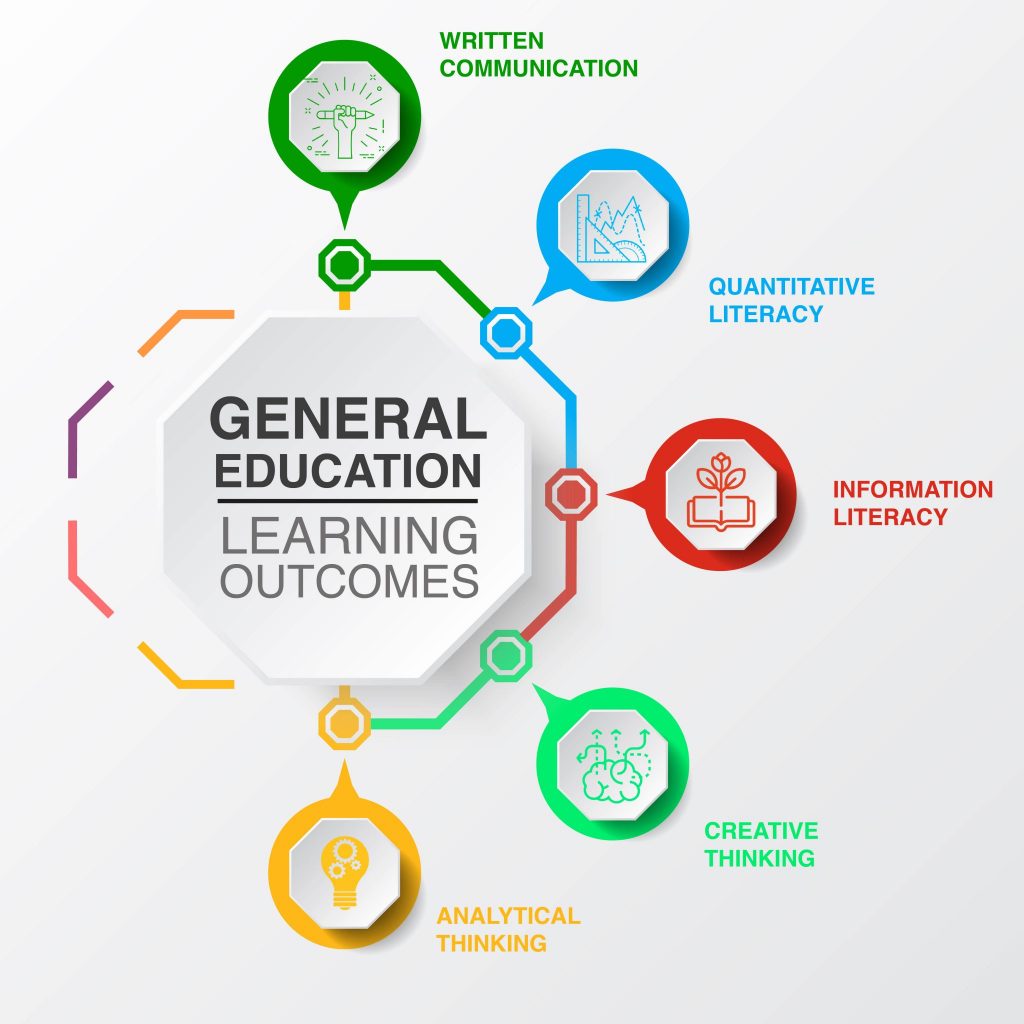Student Learning Outcomes (SLOs) have become a more ingrained aspect of General Education at EWU to help make the experience more cohesive for students and more assessable for faculty. These are intellectual and practical skills based on national standards. The following outcomes are from the AAC&U best practices and are currently being honed to best fit EWU.
Group One
Students will demonstrate the ability to think analytically by:
- Systematically examining evidence to identify patterns and anomalies.
- Applying a theory to data to make meaningful sense of the data.
- Stating conclusions that are logical extrapolations from the evidence.
- Identifying the limitations of the conclusions they draw.
Students will demonstrate the ability to think creatively by:
- Embracing contradictions by integrating alternate, divergent, or contradictory perspectives or ideas.
- Synthesizing ideas by connecting ideas or solutions in novel ways.
- Engaging in innovative thinking by creating a novel or unique idea, question, format, or product.
Students will demonstrate information literacy by:
- Utilizing search strategies to find relevant information.
- Applying sound criteria (i.e., credibility, accuracy, and currency) to render an educated judgment about the quality of information.
- Using information to effectively accomplish a clear purpose.
- Accurately employing scholarly conventions for attributing information to its source.
Group Two
Students will demonstrate the ability to communicate in writing by:
- Clarifying the purpose of the document.
- Conveying their meaning clearly throughout the document.
- Organizing their document logically.
- Making choices concerning style, tone, and degree of complexity that are appropriate to the audience.
Students will demonstrate quantitative literacy by:
- Solving mathematical problems correctly by performing calculations.
- Describing the meaning of information presented in mathematical forms, such as equations, graphs, diagrams, and tables, accurately.
- Converting information into mathematical forms, such as equations, graphs, diagrams, and tables, accurately.
- Using quantitative information correctly to support an argument.


